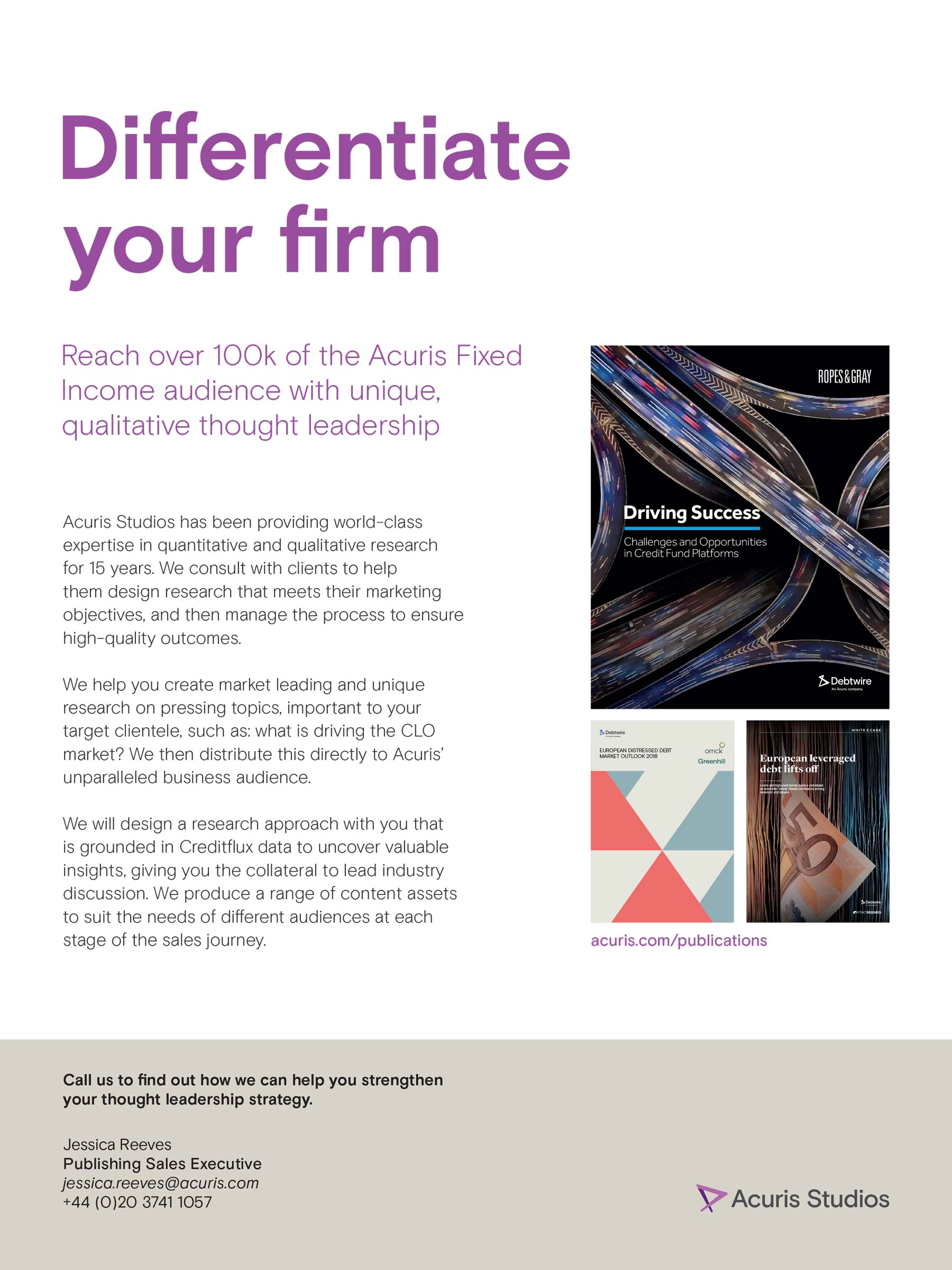

October 2021 | Issue 239
Opinion Credit
I’m passionate about broader representation within investment teams
I’m passionate about broader representation within investment teams

Leila Donnachy
Head of Global ABS and senior portfolio manager
CIP Asset Management
Lives:
Sydney
Education:
BSc Mathematics (University College London), MS Financial Engineering (Columbia University), MBA (Melbourne Business School)
Fun fact:
Fan of all ocean sports; latest favourite is being a swimming instructor for her daughter
Favourite movie:
All Scorsese and Di Caprio collaborations (too difficult to pick just one)
Bucket list:
Australia’s international borders have been closed for over 18 months now so she is looking forward to traveling anywhere overseas, with South Africa high on the list.
Career:
Having studied in London, New York and Melbourne, Donnachy joined Barclays in 2010. She took a buy-side role at Challenger
a year later and was promoted to head of global ABS in 2019.CIP:
is a wholly-owned investment manager of the Challenger Group, managing AUD21 billion ($15.2 billion) across global fixed income, real estate and derivative strategies.Q.
What was your first job in credit?
A. I started out in fixed income structured product sales and trading at Barclays Capital in Sydney. I then joined Challenger in early 2012 as part of the securitised credit investment team and, over the past decade, I have enjoyed being part of CIPAM’s growth story. In recent years, I have taken on additional responsibilities as the portfolio manager for one of our large multi-sector credit accounts.
Q.
Which assets do you invest in?A.
CIPAM’s fixed income team invests across public global ABS and investment grade corporate credit markets, as well as private real estate, corporate and securitised debt in Australia and New Zealand.As relative value-driven credit investors, our asset allocation decisions across the credit space are in part driven by the illiquidity and complexity premia we can extract.
Q.
What are the best and worst investments in credit today?
A.
Given the spread compression in corporate credit markets, illiquidity and complexity premia are close to their historical wides across some securitised credit markets, such as Australian/New Zealand private securitised credit and pockets of the US and European CLO market. But long credit spread duration is a trade I would be avoiding right now.Q.
What is the best credit trade you’ve made?A.
Aside from activity in March-April 2020, it is buying European CLO mezz that sold off sharply through the energy default cycle in early 2016 in sympathy with US CLOs, despite minimal energy exposure within European CLO pools.Q.
And the worst?
A.
Not having enough faith in big pharma around the development timeframe for covid-19 vaccines and their efficacy. In other words, we could have been more aggressive in terms of risk appetite over the course of 2020.Q.
Who is your inspiration?
A.
New Zealand prime minister Jacinda Arden — she represents a generation of leaders whose style is authentic and empathetic, yet she acts decisively, and is consistent in her convictions and values.Q.
Where is the market heading?
A.
It seems that with every new wave of the virus the economic impact is softer than with the previous one, as businesses have adapted their business models where possible, and consumers and corporates alike are flush with liquidity. It is hard not to be constructive on credit fundamentals, but we are less constructive on technicals, particularly in markets where net supply is expected to remain elevated.Q.
What is the biggest thing that needs to change about the way your industry does business?
A.
I’d like to see ESG considerations embedded into investment firms’ business practices, not just as part of the investment process, but also at a platform level. For example, more diversity and a broader representation of different segments of society within investment teams is one aspect I am passionate about.Q.
Where do you see future opportunities for your business in credit?
A.
Banks de-leveraging is an ongoing theme within the Australian/New Zealand market. Similar to what we have seen in the UK, a large number of non-bank lenders are setting up shop to fill the void with product offerings ranging from reverse mortgages and buy-now-pay-later to SME large ticket equipment finance. This has led to a broad opportunity set for credit investors with attractive risk-adjusted returns on offer. CIPAM’s global credit platform is well placed to continue providing funding solutions to our non-bank lending partners.Global credit funds & CLO's
October 2021 | Issue 239
Published in London & New York.
Copyright Creditflux. All rights reserved. Check our Privacy Policy and our Terms of Use.


















